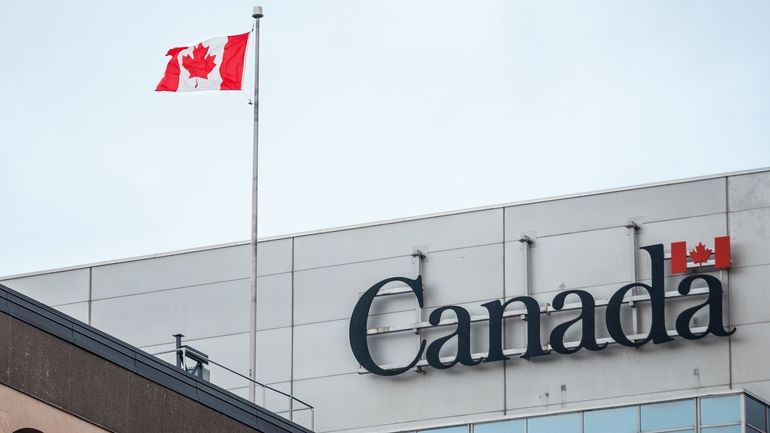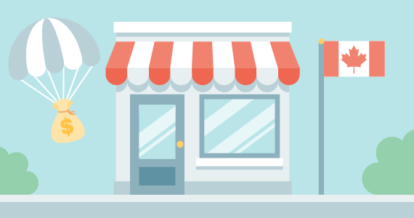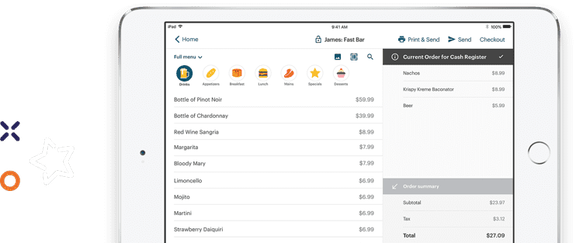There’s no denying that COVID-19 has had a major impact on Canada’s restaurant industry. While some have been able to pivot to takeout and delivery, Restaurants Canada reports that 800,000 foodservice jobs have already been lost to the pandemic and some restaurants have been forced to permanently close their doors.
But as bleak as things may seem, help is on the way. Not only has the federal government stepped up with important measures such as a major wage subsidy, several private companies have also offered COVID-19 funding to the struggling restaurant industry. Even everyday Canadians have opened their wallets to help support their favourite restaurants and foodservice workers.
The challenge for restaurateurs right now is figuring out how to take advantage of restaurant funding and relief programs. That’s where this article comes in. We’ll help you cut through the noise and learn more about current restaurant funding options, including:
- Federal government assistance
- Provincial and local government relief programs
- Small business loans
- COVID-19 relief grants
- Other forms of Canadian restaurant funding
Not in Canada? See our complete guide to COVID-19 funding for U.S. restaurants here.

Canadian Restaurant Funding Options
Since the COVID-19 crisis began, restaurateurs from across the country have been calling on the federal government to step up and provide assistance to the struggling hospitality industry. Though the proposed solutions may not meet the needs of every restaurant, there are several initiatives underway to help restaurants make it through COVID-19 with their businesses intact.
Below, we’ll outline some of the current federal funding options for restaurants in Canada.
1. Federal Government Assistance for Restaurants
On March 27th, Prime Minister Trudeau announced significant funding and support for Canada’s small and medium-sized businesses. The new measures are designed to keep employees on the payroll during the COVID-19 crisis and help businesses continue operating. Below are some of the programs that Canadian restaurateurs can take advantage of.
Canada Emergency Business Account (CEBA)
Implemented by eligible financial institutions in cooperation with Export Development Canada (EDC), the Canada Emergency Business Account program will provide small businesses with interest-free loans of up to $40,000, with a forgivable portion of 25 per cent up to $10,000, if it is paid back by December 31, 2022. The loans are designed to help businesses cover their operating costs during a period where their revenues have been temporarily reduced due to COVID-19. Contact your primary financial institution to apply for these loans.
Canada Emergency Wage Subsidy
The Canada Emergency Wage Subsidy is a 75% wage subsidy for qualifying businesses for up to three months (backdated to March 15, 2020). Eligible employers are those that have a drop of at least 15% (previously 30%) of their revenue during eligible periods. Companies will have to reapply each month and demonstrate that their revenue in that month is less than it was in the same month the year prior.
To apply, employers must go through the My Business Account portal on the CRA’s website. Funds should then start to flow to businesses within the next three to six weeks. However, it’s important to note that these funds are for employee wages only and not for other operating costs such as rent and utility payments.
It’s important to note that the government has announced that anyone who receives the subsidy, but is proven to be ineligible will have to repay the funds in full.
Canada Emergency Response Benefit (CERB)
The federal government has also proposed legislation to establish the Canada Emergency Response Benefit (CERB). CERB is a taxable government payment of $2,000 a month for up to four months for workers grappling with job loss or other circumstances that have resulted in a sudden loss of income due to COVID-19.
CERB applies to wage-earners, as well as contract workers, and self-employed individuals who would otherwise not be eligible for Employment Insurance (EI). The federal government has also noted that anyone still working up to 10 hours a week or less will be eligible for CERB – a measure that helps to extend the program’s benefits to restaurant staff working reduced hours.
Essentially, CERB is designed to make sure that all Canadians, regardless of whether they qualify for EI or not, have access to some form of income during the COVID-19 crisis – something that is especially important to out-of-work food service workers.
The portal to apply for CERB is currently live and is fairly straightforward. To apply, you will need:
- Personal contact information
- Your social insurance number (SIN)
- Confirmation that you meet the eligibility requirements
- You may be asked to provide additional documents to verify your eligibility at a future date
Once you’ve completed the application, benefits should start within 10 days. However, if you have already set up direct deposit, it may take as little as three days.
Keep in mind that an employee cannot receive CERB payments and be paid through the wage subsidy program in the same four-week period.
Enhanced Work-Sharing Program
To support employers who have been affected by the downturn in business due to COVID-19, the federal government has put in place Work-Sharing (WS) temporary special measures.
Generally, the WS program is designed to help employers avoid layoffs when there is a temporary decrease in business activity due to factors out of their control. Essentially, the program provides EI benefits to eligible employees who reduce their normal working hours while their employer’s business recovers. This allows employers to retain their staff and allows employees to keep their job.
To be eligible for the WS program, your business must be a year-round business that has been in operation for at least one year. Businesses must be privately held and have at least two employees in the WS unit.
Temporary Wage Subsidy
In addition to the Canada Emergency Wage Subsidy, Prime Minister Trudeau also announced a Temporary Wage Subsidy for Employers. This three-month measure is designed to help employers reduce the amount of payroll deductions remitted to the Canada Revenue Agency (CRA). As outlined on the Government of Canada website, “The subsidy is equal to 10% of the remuneration you pay from March 18, 2020 to June 19, 2020, up to $1,375 for each eligible employee and to a maximum of $25,000 total per employer.”
Businesses that do not qualify for the Canada Emergency Wage Subsidy may continue to qualify for the previously announced 10% Temporary Wage Subsidy for Employers. This subsidy is a three-month measure that allows employers to reduce the amount of payroll deductions required to be remitted to the CRA.
Business Credit Availability Program (BCAP)
The Business Credit Availability Program (BCAP) is designed to help Canadian businesses obtain financing during the COVID-19 crisis. Through the BCAP, Export Development Canada and the Business Development Bank of Canada will provide $65 billion in direct lending and other financial support at market rates to businesses whose access to financing would otherwise be restricted. To access this COVID-19 funding, the federal government recommends contacting the financial intuition you typically work with.
Tax Filing and Payment Extensions
To help small business owners and their staff manage the COVID-19 crisis, the federal government has extended the tax filing deadline. Now, individuals have until June 1, 2020, to submit their income tax return. Individuals and businesses will also be able to defer their income tax payments (for taxes owed between March 18, 2020 and September 2020) until after August 31, 2020.
As for GST/HST remittances, businesses will now have until June 30, 2020 to remit GST/HST due to the government. More details can be found here.

2. Relief From Provincial and Local Governments
While support from the top is encouraging, restaurants across Canada have been affected differently by COVID-19. For instance, restaurants in British Columbia, Alberta, Ontario, and Quebec have already been hard-hit, while other provinces may feel the burden in the weeks ahead. This has led some provinces to offer additional restaurant funding options and small business support.
Alberta
To provide Alberta businesses with COVID-19 funding and relief, the provincial government launched several initiatives:
- The Emergency Isolation Support program was launched to provide one-time funding until the federal government provided its own support program. Now that the CERB program is in place, Alberta’s Emergency Isolation Support program is closed.
- Alberta corporate income tax balances and installment payments coming due between March 18, 2020 and August 31, 2020 are deferred until August 31, 2020. Additionally, the filing of corporate income tax returns due after March 18, 2020 and before June 1, 2020 have been extended to June 1, 2020.
- The collection of non-residential property tax for businesses will be deferred for six months. In turn, commercial landlords are encouraged to pass those savings on to their tenants, either through reduced or deferred payments.
- Small, medium, and large private sector employers can defer WCB premium payments until 2021.
- Small commercial customers can defer electricity and natural gas bill payments for the next 90 days. This means that no one will be cut off, regardless of the service provider.
- ATB small business customers can apply for a payment deferral on loans and lines of credit for up to 6 months and access additional working capital.
British Columbia
To help B.C. businesses stay afloat during COVID-19, the province is extending filing and payment deadlines for the following taxes until September 30, 2020:
- Employer Health Tax
- Sales Tax
The province has also created the B.C. Emergency Benefit for Workers, which will provide a one-time $1,000 payment to B.C. residents who have lost income due to COVID-19. This is especially important for restaurant staff who have lost their job due to restaurant closures.
Manitoba
Manitoba has also extended the April and May tax filing deadlines until June 22, 2020 for small and medium businesses with monthly RST remittances of no more than $10,000. For businesses that file on a quarterly basis, the due date of April 20, 2020 has been extended to June 22, 2020.
In addition, the Workers Compensation Board of Manitoba has announced that it will:
- Defer premium payments until the end of May.
- Not charge business interest and/or penalties for non-payment until October.
- Extend the payroll reporting deadline until the end of May.
- Ensure that coverage remains active for accounts that choose to defer payments until the end of October.
New Brunswick
The Government of New Brunswick has announced that it will provide working capital to small businesses to help them respond to the challenges associated with COVID-19. These loans will be up to $100,000 and Opportunities New Brunswick (ONB) will work with a trusted partner to administer the application process.
The Government of New Brunswick will also defer loan and interest repayments on existing provincial loans for up to six months. This assistance is available on a case-by-case basis to businesses with an existing loan from a Government of New Brunswick department. Deferrals can be requested by contacting the specific department that issued the loan.
WorkSafeNB has also announced that assessment premiums related to employer payrolls for March, April and May will be deferred for three months without interest charges.
Newfoundland and Labrador
In Newfoundland and Labrador, support includes:
- A three-month deferral of payment on Atlantic Canada Opportunities Agency (ACOA) loans as of April 1st.
- A three-month deferral of loan payments to all clients with business loans under the Innovation and Business Investment Corporation as of March 18th.
- Workplace NL has deferred assessment payments from employers until June 30, 2020.
Northwest Territories
In response to COVID-19, the Government of the Northwest Territories has put together an economic relief package valued at $13.2 million dollars. Some of the immediate response measures in this package include:
- Offering low-interest Business Development and Investment Corporation (BDIC) loans to businesses to help offset up to one month of COVID-19 impacts.
- Allowing for the deferral of any current BDIC loan payments for a period of up to three cumulative months – between April 1, 2020 and September 30, 2020 – with no penalty or additional interest charges.
- Shortening the payment terms on GNWT invoices so that they are paid out as soon as possible, giving small businesses access to cash flow more quickly.
Nova Scotia
On April 2nd, Nova Scotia’s Premier Stephen McNeil announced an economic support plan that includes the following measures:
- Worker Emergency Bridge Fund: One-time payments of $1,000 to help the self-employed and those laid-off workers who do not qualify for Employment Insurance.
- Small Business Impact Grant: Eligible small businesses will receive a one-time, upfront grant of 15% of their revenue from sales – either from April 2019 or February 2020, up to a maximum of $5,000.
The Government of Nova Scotia is also encouraging landlords to defer rent payments from their commercial tenants for three months and then spread the deferred rent amount over the rest of the lease term. If a tenant’s business is closed due to the Health Protection Act order, landlords may be eligible for coverage (up to a maximum of $50,000 per landlord and $15,000 per tenant) if they are unable to recover the deferred rent.
The provincial government has also issued the following changes to payments:
- The deferral of payments until June 30th for all government loans, including those under the Jobs Fund and Nova Scotia Business Fund.
- The deferral of payments for small business renewal fees, including business registration renewal fees and workers compensation premiums, until June 30th.
- Changes to the Small Business Loan Guarantee Program, including the deferral of principal and interest payments until June 30, enhancing the program to make it easier for businesses to access credit up to $500,000, and for those who might not qualify for a loan, the government will guarantee the first $100,000.
Nunavut
Nunavut businesses can access immediate, short-term relief through the territory’s Small Business Support Program. Through the program, eligible small businesses can get up to $5,000 in the form of a non-repayable contribution. For the purposes of the grant, small businesses are defined as those that make less than $500,000 in gross sales each year, or that have fewer than 10 employees. More information can be found here.
Ontario
In its Spring Fiscal Update, the Ontario government announced the following support for small businesses:
- Provincial tax deferrals on the Employer Health Tax (EHT), Tobacco Tax, Fuel Tax, Beer Tax and Mining Tax, and other provincially-administered taxes until August 31, 2020 with no interest or penalties.
- WSIB premium deferrals until August 31, 2020 with no interest or penalties.
- Business Education Property Tax deferrals for one payment quarter (90 days after June).
- Employer Health Tax (EHT) exemption threshold increased to $1-million for the next year.
- Property tax reassessments being conducted this year for the 2021 tax year have been postponed.
To improve cash flows, the province is also providing a five-month interest and penalty-free period to make payments for the majority of provincially administered taxes.
Prince Edward Island
In an effort to support P.E.I. small businesses, the provincial government has introduced the following programs:
- Rent Deferral Program: P.E.I. landlords who defer rent payments from their commercial tenants for three months (May-July) could be eligible for financial assistance (up to a maximum of $50,000 per landlord and $15,000 per tenant) if the deferred rent can’t be recovered. Contact Finance PEI at [email protected] by April 15 to register.
- Workers’ Compensation Board (WCB) Deferred Premiums: The WCB will defer all assessment due dates related to 2020 employer payrolls, meaning that covered employers will not have to pay WCB premiums until June 30, 2020. Interest and penalties will not accrue during this time.
- Emergency Working Capital Financing: Eligible small businesses can apply to receive a working capital loan of up to $100,000 with a fixed interest rate of 4% per annum to be used to assist with fixed operating costs (including payroll, rent, utilities etc.). Principal and interest payments will be deferred for a minimum of 12 months.
- COVID-19 Business Adaptation Advice Program: Small businesses can apply for a non-repayable contribution toward the cost of hiring a professional to provide advice and support to adapt to or recover from the impacts of COVID-19.
- COVID-19 Income Support Fund: A one-time lump sum payment of $750 from the provincial government to eligible residents of P.E.I who have lost their job, been laid off, or lost all revenues through self-employment.
- COVID-19 Special Situation Fund: Provides funding to businesses that have experienced urgent income loss as a result of COVID-19 and are not eligible for other federal and provincial funding support.
- Emergency Income Relief for the Self-Employed: A maximum of $500 per week for the period of March 16 to March 29, 2020 for eligible self-employed individuals.
- Emergency Relief – Worker Assistance Program: A temporary program providing financial support to employers to assist their employed workers who have been impacted by reduced hours at work as a result of COVID-19.
P.E.I. also recently announced additional measures to help residents with property tax relief through amendments to the Real Property Tax Act regulations. This includes:
- Deferring provincial property tax and fee payments until December 31, 2020
- Providing interest relief for the tax year 2020, including all past due amounts
- Suspending tax sale processes for the remainder of 2020
- Delaying the mailing of provincial tax bills for 2020 until June
Quebec
In Quebec, there are a number of provincial programs in place to assist small businesses, including:
- The Investissement Québec program provides emergency financial assistance to businesses affected by the crisis. If you already have a file, contact the person handling your file. Otherwise, contact your financial institution who will then take over.
- The concerted temporary action program provides support for businesses whose liquidity is affected by the repercussions of COVID-19. To be eligible for this support, businesses must show that their cash flow issues are temporary and that the liquidity shortage stems from:
- A problem involving the supply of raw materials or products (goods or services).
- An inability, or a substantially decreased ability, to deliver goods, products or services.
- The Incentive Program to Retain Essential Workers (IPREW) provides financial assistance to individuals working essential jobs during the COVID-19 pandemic. The program provides $100 per week retroactive to March 15, 2020, for a maximum of 16 weeks). Cooks, cleaners, drivers, cashiers, and most other restaurant workers are eligible for this benefit.
Revenu Québec has also postponed the deadline for filing income tax returns to June 1. The deadline to pay balances due for 2019 tax returns has been postponed to July 31.
Saskatchewan
The Saskatchewan government has created a financial support plan for Saskatchewan employers and their employees impacted by the COVID-19 pandemic. This support plan includes the following programs:
- Self-Isolation Support Program: $450 per week for a maximum of two weeks (or $900), for Saskatchewan residents forced to self-isolate and are not covered by federal EI programs and other supports.
- PST Remittance Deferral and Audit Suspension: Saskatchewan businesses who are unable to remit their PST due to cash flow concerns will have three months of relief from penalty and interest charges.
Additionally, the Saskatchewan Workers Compensation Board (WCB) is waiving premium penalties for employers effective April 1 until June 30, 2020.
Yukon
In the Yukon, Premier Sandy Silver announced the development of a stimulus package for Yukon businesses and workers. This package includes measures such as:
- A paid sick leave rebate to allow Yukon workers without sick leave to stay at home if they are sick or are required to self-isolate.
- An events grant to cover irretrievable losses related to perishable goods and cancellation of accommodation and services as a result of major events canceled due to COVID-19.

3. Small Business COVID-19 Loans
To ensure that small businesses like restaurants have access to the capital they need during the COVID-19 crisis, the government of Canada has launched a number of loan programs.
New Loan Programs for Businesses
A New Loan Guarantee for Small and Medium Enterprises
EDC will guarantee new operating credit and cash flow term loans that financial institutions extend to small and medium-sized enterprises. This program is now open to all businesses impacted by COVID-19, including bars and lounges that get most of their revenue from alcohol sales. Contact your primary financial institution to apply for these loans.
A New Co-Lending Program for Small and Medium Enterprises
To provide additional liquidity support for Canadian businesses, the Co-Lending Program will bring the BDC together with financial institutions to co-lend term loans to SMEs for their operational cash flow requirements. Contact your primary financial institution to apply for these loans.
Business Development Bank of Canada (BDC)
Canadian businesses that have been generating revenues for at least 24 months can apply for a BDC Small Business Loan of up to $10,000.
The BDC also offers Purchase Order Financing to increase your cash flow so you can pay suppliers. The financing covers up to 90% of the PO amount.
Other Small Business Loans
If you have been in business for at least six months and your restaurant generates at least $5,000 in monthly revenue, you can access restaurant business financing from a number of different financial providers. To determine which provider and rates are best for you, you can use this tool.
4. COVID-19 Relief Grants
Not all financial support and funding is coming from the top. In some cases, private companies and industry organizations have stepped up with their own relief efforts.
GoFundMe Small Business Relief Initiative
The crowdfunding platform GoFundMe has launched the Small Business Relief Initiative to support businesses facing financial loss due to COVID-19. The goal of the initiative is to supply small businesses with support and financial assistance in the form of fundraising tools and grants.
As part of the initiative, GoFundMe.org has teamed up with Yelp and Intuit QuickBooks to launch the Small Business Relief Fund. Until the fund is depleted, donations to the Small Business Relief Fund will be paid out as one-time $500 matching grants to qualifying small businesses that created their own fundraisers through the Small Business Relief Initiative or already had existing GoFundMe pages. For those who started a fundraiser prior to the creation of this fund, the organizer can simply add the hashtag #SmallBusinessRelief to receive an email explaining how they can apply for a matching grant from the Small Business Relief Fund.
Saskatoon Regional Economic Development Authority
The Saskatoon Regional Economic Development Authority is offering grants of up to $5,000 for small businesses in Saskatoon that are experiencing significant financial challenges as a result of COVID-19. The business must have been operating for more than six months but less than five years. These businesses must also have 10 employees or fewer (including the owner).
Toronto Restaurant Workers Crisis Relief Fund
Through GoFundMe, TasteToronto has launched the COVID-19 Crisis Relief for Toronto’s Restaurant Workers. All of the money raised through the fundraiser will go to 30 restaurants that have been selected by the TasteToronto community or nominated by other restaurant owners. Nominations can be made here.
Facebook Small Business Grants Program
In the wake of COVID-19, Facebook has begun offering $100 in cash grants and ad credits to small businesses in over 30 countries. The grant money can be used to cover operational costs, pay employees, cover rent, and more. To be eligible, you must have been in business for more than a year and you must employ between two and 50 employees.
5. Other Forms of Relief for Restaurants
While it may not be as useful as a grant or a business loan, there are other forms of financial support Canadian restaurateurs can access right now.
Waived Third-Party’s Fees
A number of popular third-party apps have announced that they will be waiving fees on their services to help restaurants stay afloat. Some of these offers include:
- Yelp: Offering support in the form of waived advertising fees and $100 in free advertising.
- Uber Eats: Waiving all customer delivery fees for independent restaurants, to encourage diners to keep ordering from local venues. Restaurants in Canada can also receive daily payouts rather than the standard weekly system.
- DoorDash: Independent restaurant operators can sign up for the app for free and pay zero commission for 30 days. Additionally, all existing partners will pay no commission fees on pickup, and more than 100,000 independents will be added to DashPass for free to help boost sales.
- TouchBistro: TouchBistro Online Ordering is currently available for free for 12 months. The isolutions lets diners order directly from your website so you can keep 100% of the profits.
Save Hospitality
A group of over 500 independent restaurants and their stakeholders have joined forces to launch Save Hospitality. The group has come together to create a detailed proposal for government support and has been lobbying all levels of government for immediate relief, immediate protection, and help to reopen. You can join their efforts by using this link.
Though it’s a scary time for Candian restaurants, many levels of government have begun to recognize just how important the recovery of the restaurant industry is to Canada’s overall economic recovery. And thanks to these new sources of restaurant funding and relief, Canadian restaurateurs can begin accessing the support needed to get them through the short-term crisis and ensure the industry’s long-term recovery.
We’ll continue to update this list as information becomes available. In the meantime, you can access TouchBistro’s Restaurant Recovery Navigator for more tools and tips to help you cope with COVID-19, or email us at [email protected] if there are specific topics you’d like us to cover.






